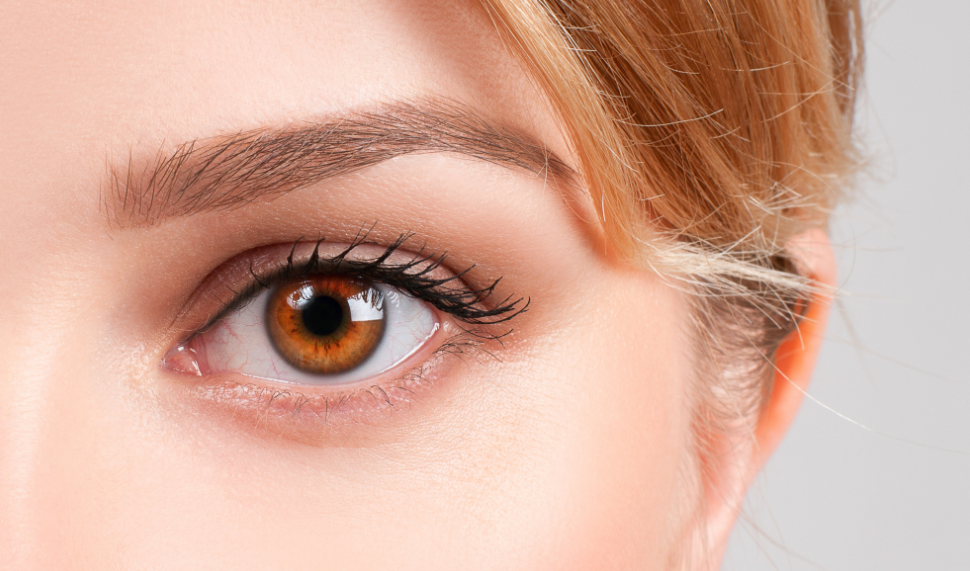Our eyes are one of the most important organs in our body, yet we often take them for granted.
With the rise of digital screens and increased exposure to harmful UV rays, it’s more important than ever to prioritize eye health. In this article, we’ll provide you with 8 effective tips for maintaining healthy eyesight throughout your life.
From regular check-ups to proper eye protection, we’ve got you covered! So sit back, relax, and let’s dive into these essential tips for keeping your peepers in tip-top shape and how to keep your eyes healthy!
Read on!
1. Get Regular Eye Exams
Getting regular eye exams is crucial for maintaining healthy eyes. You might think that your vision is perfect, but it’s important to remember that many eye diseases and conditions develop gradually and without any noticeable symptoms.
During an eye exam, your optometrist or ophthalmologist will check the overall health of your eyes. They will test your vision through a series of evaluations. They may also dilate your pupils to get a better look at the inside of your eyes.
It’s recommended that adults get their eyes checked every two years if they’re under 65 and don’t have any pre-existing conditions. Such conditions may include diabetes or high blood pressure.
If you do have an existing condition, more frequent eye exams may be necessary.
Don’t wait for yourself to tell someone that “my eye hurts when I blink“. Have a regular eye check, and you’ll be able to avoid this common symptom of eye problems.
2. Wear Sunglasses
Wearing sunglasses is not only a fashion statement. It also plays an important role in keeping your eyes healthy. When you step outside on a sunny day or even on a cloudy day, harmful UV rays are still present. This can cause long-term damage to your eyes.
Sunglasses protect the delicate skin around your eyes from sunburn and premature aging. Just like how you apply sunscreen to protect your skin, wearing sunglasses helps prevent wrinkles and fine lines caused by squinting under the sun.
Prolonged exposure to UV rays can lead to cataracts and macular degeneration later in life. Wearing sunglasses that block 100% of UVA and UVB rays helps reduce the risk of these eye diseases.
3. Eat a Healthy Diet
Your eyes require essential nutrients to function properly and maintain their health. Include plenty of fruits and vegetables in your diet, especially those rich in vitamins A, C, E, and beta-carotene. These nutrients are crucial for maintaining good vision and preventing age-related eye diseases like macular degeneration.
Omega-3 fatty acids found in fish such as salmon or tuna can also help prevent dry eyes and improve overall eye health. Nuts, seeds, legumes, and whole grains are also beneficial sources of nutrition for optimal eye health.
4. Take Breaks From Digital Screens
Whether it’s for work or entertainment, we spend a significant amount of time in front of our electronic devices. Unfortunately, this can take a toll on our eyes. It can lead to various problems like eye strain, dryness, and headaches.
To prevent these issues, it’s important to take regular breaks from digital screens. One effective way is the 20-20-20 rule. Every 20 minutes, look away from your screen and focus on something 20 feet away for at least 20 seconds. This helps relax your eye muscles and reduce strain.
Another useful tip is adjusting the brightness and contrast levels of your screen according to the surrounding lighting conditions. This will make it easier on your eyes when transitioning between light environments.
5. Quit Smoking
Cigarette smoke contains harmful toxins that can cause damage to your optic nerve. It can increase the risk of cataracts and macular degeneration and worsen dry eye symptoms.
But quitting smoking is easier said than done. Nicotine addiction can be tough to break, but it’s not impossible. You can also try using nicotine replacement therapy or prescription medications under medical supervision. These aids may help reduce cravings and make it easier for you to wean off cigarettes gradually.
6. Manage Chronic Conditions
Chronic illnesses like diabetes and high blood pressure can have a significant impact on your eyesight. It’s important to work with your healthcare provider to manage these conditions and keep them under control.
Diabetes, for example, can cause damage to the small blood vessels in the retina. This leads to vision loss or even blindness if left untreated. If you have diabetes, it’s crucial to monitor your blood sugar levels regularly and follow your doctor’s recommendations regarding medication and lifestyle changes.
7. Use Proper Eye Protection
Whether you are working in a hazardous environment or participating in sports, using proper eye protection can prevent serious eye injuries. Eye protection includes:
- safety glasses
- goggles
- face shields
These can provide a barrier between your eyes and any potential hazards. The type of eye protection needed depends on the activity being performed.
8. Practice Good Hygiene
Good hygiene is essential for keeping your eyes healthy. Start by making sure that you regularly wash your hands with soap and warm water, and dry them with a clean towel.
Avoid touching your eyes, as germs and bacteria can easily get stuck in the eye area. To keep your eyes moist and prone to bacteria, use an eye lubricant or eye drops, especially when using the computer or a phone for too long.
Learn How to Keep Your Eyes Healthy
Eyesight is a precious gift that should be cared for. Practicing healthy eye habits, wearing protective eyewear, and consulting an eye doctor regularly are key steps to promoting optimum eye health.
Following these valuable steps on how to keep your eyes healthy will help keep your eyes functioning properly.
Get started today and take the steps you need to help maintain your eye health.
Visit our blog for helpful topics.

